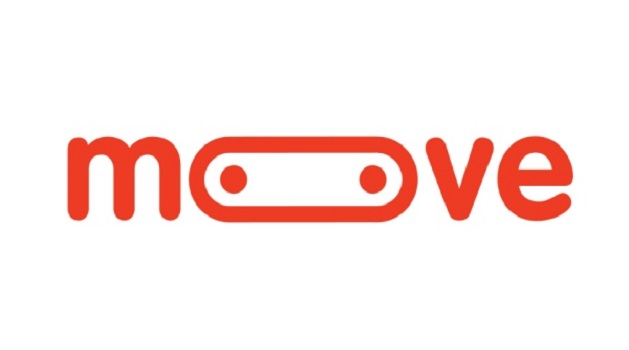General News
Emirates A380 Service to Start 1st September

Emirates, a global connector of people and place has announced that Frankfurt, the financial epicentre of Germany, will be the next destination slated for its flagship A380 aircraft. The daily A380 service will start on 1st September.
Thierry Antinori, executive vice president and chief commercial officer, Emirates said: “Frankfurt was one of the first European destinations for Emirates and as the financial capital of Germany it continues to be strategically important.
“Deploying larger capacity aircraft, such as the A380, is central to helping us meet growing passenger demand between one of the Europe’s busiest economic regions and the emerging economies of Asia, Middle East and Africa, through seamless, swift connections via our Dubai hub. The local economy will also derive substantial benefits from tourism growth with the increased number of visitors from the GCC region.
“We are proud to fly our flagship A380 aircraft to Frankfurt from 1st September and offer our passengers the Emirates on-board Shower Spa experience, our world-renowned on-board Lounge, and an unparalleled 1,700 channels of inflight entertainment across all cabins.”
Volker Bouffier, Prime Minister of German State of Hesse commented: “Emirates’ A380 service represents a clear commitment to Frankfurt Airport and its surrounding region facilitating the flow of international tourism and trade. Emirates has connected two strong business regions, the UAE and Hesse, for 27 years. The airline’s triple daily services demonstrate its continued commitment to Frankfurt Airport, the region’s largest employer.”
Frankfurt is currently served with a triple daily Boeing 777 operation. From 1st September, EK 45 becomes an A380 flight, leaving Dubai at 0825hrs and arriving in Frankfurt at 1315hrs. The return double-decker flight, EK46, departs Frankfurt at 1520hrs and lands in Dubai at 2335hrs.
Also, Peter Feldmann, Lord Mayor of Frankfurt said: “Frankfurt welcomes the Emirates A380, an aircraft that is partly produced in Germany and that acts as a worldwide ambassador for European top-class engineering. Emirates’ decision to deploy the A380 further strengthens Frankfurt Airport’s position as one of the leading hubs of international aviation”.
Dr. Stefan Schulte, chairman of the Executive Board of Fraport AG commented thus, “Frankfurt was amongst the very first airports ever to be ready for the Airbus A380. The operation of the latest generation of wide-bodied aircraft at our airport further strengthens our role as international air traffic hub. We thank Emirates for the long-standing partnership and look forward to regularly welcome the airline’s flagship at Frankfurt.”
With 48 A380s in its fleet, Emirates is the largest operator globally of the Airbus superjumbo, which has carried over 25 million passengers since its launch in 2008.
Emirates is also the largest A380 purchaser with 92 pending delivery, a share of the A380 programme which alone is estimated to support approximately 12,000 direct German jobs.
German aeronautical businesses contribute to the production of the aircraft’s engines, wings, ice entertainment system, lighting and On-board Shower features, and over €200 million is spent each year by Emirates for the operation and maintenance of these components, according to a study by the Institute of Air Transport and Airport Research (DLR).
Emirates also depends on small and medium sized German suppliers of aircraft products and services for parts like galleys, aircraft upholstery, paints and ground handling equipment worth hundreds of millions of Euros each year.
The A380 is known for its environmental credentials. Its Engine Alliance GP7200 engines are extraordinarily quiet and readily meet strict ICAO Stage Four noise level standards.
In fact, the A380 offers the best noise footprint for very large aircraft, and is more than six decibels quieter on departure than the Boeing 747-400. In addition, larger aircraft mean fewer take-offs and landings – in many cases the equivalent of flying up to seven smaller aircraft types, for certain versions of the Emirates A380.
General News
Cybervergent Selected as World Economic Forum’s 2025 Technology Pioneer Company

In affirmation of its global standing, Cybervergent, a Pan-African technology company that leverages artificial intelligence to transform how organisations manage risk, governance, privacy, and cybersecurity, has been selected as one of the World Economic Forum’s (WEF) Technology Pioneers for 2025—a global cohort spotlighting companies transforming industries through breakthrough technologies and responsible innovation.

The WEF, an international organisation committed to improving the state of the world through public-private collaboration, brings together global leaders to shape economic, technological, and societal agendas. Cybervergent now joins this global community.
The company is recognized for its innovative approach to building digital trust, reimagining how organisations manage cybersecurity, risk, privacy and governance.
Commenting on the company’s milestone, Adetokunbo Omotosho, CEO of Cybervergent, said, “I am honoured that Cybervergent has been named a Technology Pioneer by the World Economic Forum. This is more than an accolade — it’s a validation of our commitment to redefining cybersecurity, privacy, and risk management to build true digital trust.
“What makes this recognition even more meaningful is the fact that Cybervergent demonstrates innovation in AI and infrastructure can emerge from any region, challenging conventional perceptions.”
Some past recipients of the Technology Pioneer recognition, including Google, Spotify, and Airbnb have gone on to fundamentally reshape global industries.
As a member of the 2025 Technology Pioneers community, Cybervergent will be contributing to discussions shaping cybersecurity, AI, and cyber resilience across industries and the global digital economy.
General News
Moove Plans to Raise $1.2Bn Debt Round for US Autonomous Vehicle Expansion

Moove, an African mobility fintech startup, is on a quest to secure a $1.2 billion debt financing round to support the rollout of a fleet of autonomous vehicles.

This is in partnership with Alphabet Inc.’s Waymo in the United States, according to a Bloomberg report citing sources familiar with the matter.
The startup has since attracted backing, including from Uber Technologies Inc., and entered a strategic partnership with Waymo in December 2024 to provide financing for self-driving cars.
Ladi Delano, co-founder of Moove, noted that the company has a solid financial track record.
“Moove has built strong relationships with some of the world’s leading lenders. We have also fully repaid our first-ever debt facilities, which signals our maturity and marks a key milestone that demonstrates the strength of our platform as we enter the next phase of global autonomous-vehicle infrastructure deployment,” he said.
The round is reportedly oversubscribed, with strong participation from private credit firms and banks.
Waymo has also not made any official statement regarding the funding round. While final details are expected to be concluded in the coming weeks, the deal will mark a significant milestone for the firm as it ramps up its global ambitions.
Founded in 2020 by Nigerian entrepreneurs, Ladi Delano and Jide Odunsi, Moove began by providing vehicle financing for ride-hailing drivers in Africa’s largest cities.
General News
Firm Explores the Evolution of AI-powered Ransomware with Password-gated Capabilities

Kaspersky experts have revealed the inner workings of FunkSec — a ransomware group that illustrates the future of mass cybercrime: AI-powered, multifunctional, highly adaptive and operating on volume with ransoms as low as $10,000 to maximise profits.

Kaspersky’s Global Research and Analysis Team (GReAT) constantly monitors the ransomware threat landscape, where attacks continue to rise. According to the company’s latest State of Ransomware report, the share of users affected by ransomware attacks worldwide increased to 0.44% from 2023 to 2024, up by 0.02 percentage points.
While this percentage may appear modest compared to other cyber threats, it reflects the fact that attackers typically prioritise high-value targets rather than mass distribution, making each incident potentially devastating. Within this evolving landscape, FunkSec has emerged as a particularly concerning threat.
Active for less than a year since its emergence in late 2024, FunkSec has quickly surpassed many established actors by targeting government, technology, finance and education sectors. What sets FunkSec apart is its sophisticated technical architecture and AI-assisted development.
The group packages full-scale encryption and aggressive data exfiltration into a single Rust-based executable, capable of disabling over 50 processes on victim machines and equipped with self-cleanup features to evade defenses.
Beyond its core ransomware functionality, FunkSec has expanded its toolkit to include a password generator and a basic DDoS tool — both showing clear signs of code synthesis using large language models (LLMs).
FunkSec’s approach reflects the evolving landscape of mass cybercrime, combining advanced tools and tactics. Kaspersky’s GReAT experts highlight the key features that define their operations:
Password-Controlled functionality
GReAT experts discovered that FunkSec ransomware features a unique password-based mechanism that controls its operation modes. Without a password, the malware performs basic file encryption, while providing a password activates a more aggressive data exfiltration process in addition to encryption to steal sensitive data.
FunkSec packs full-scale encryption, local exfiltration and self-cleanup into a single Rust binary—without a side-loader or a companion script. That level of consolidation is uncommon and gives affiliates a plug-and-play tool they can deploy almost anywhere.
Use of AI in development
Code analysis shows that FunkSec is actively using generative artificial intelligence to create its tools. Many parts of the code seem to be automatically generated rather than manually written. Signs of this generic placeholder comments (such as “placeholder for actual check”) and technical inconsistencies, like commands for different operating systems that don’t align properly. Additionally, the presence of declared but unused functions—such as modules included upfront but never utilised — reflects how large language models combine multiple code snippets without pruning redundant elements.
“More and more, we see cybercriminals leveraging AI to develop malicious tools. Generative AI lowers barriers and accelerates malware creation, enabling cybercriminals to adapt their tactics faster.
By reducing the entry threshold, AI allows even less experienced attackers to quickly develop sophisticated malware at scale,” comments Marc Rivero, Lead Security Researcher at Kaspersky’s GReAT.
High-volume, low-ransom strategy
FunkSec demands unusually low ransom payments, sometimes as little as $10,000, and pairs this with the sale of stolen data at discounted prices to third parties. This strategy appears designed to enable a high volume of attacks, helping the group quickly establish its reputation within the cybercriminal underground. Unlike traditional ransomware groups that seek million-dollar ransoms, FunkSec employs a high-frequency, low-cost model — further underscoring its use of AI to streamline and scale operations.
Expands beyond ransomware
FunkSec has expanded its capabilities beyond the ransomware binary. Its dark leak site (DLS) hosts additional tools, including a Python-based password generator designed to support brute-force and password-spraying attacks, as well as a basic DDoS tool.
Advanced evasion
FunkSec employs advanced evasion techniques to avoid detection and complicate forensic analysis. The ransomware is capable of stopping over 50 processes and services to ensure thorough encryption of targeted files. Additionally, it includes a fallback mechanism to execute certain commands even if the user launching FunkSec lacks sufficient privileges.

 Telecom1 day ago
Telecom1 day agoMTN Nigeria Debuts Game-Changing CPaaS Platform at NextNow Forum

 Telecom2 days ago
Telecom2 days agoNCC Approves MTN, 9Mobile Roaming Collaboration Deal

 E-Financial1 day ago
E-Financial1 day agoNAICOM Issues New Licenses to SanlamAllianz Life, General Insurance

 E-Financial2 days ago
E-Financial2 days agoWorld Bank Approves Extra $65m for Nigeria’s SPESSE

 E-Financial1 day ago
E-Financial1 day agoGTCO to Become First Nigerian Bank to List on London Stock Exchange

 News1 day ago
News1 day agoAMCON Confirms ₦100Bn Sale of Ibadan DisCo Amid Legal Disputes

 E-Business1 day ago
E-Business1 day agoDomain of Deception as Attackers Deploy Spyware Under Guise of Legal Threats

 E-Financial2 days ago
E-Financial2 days agoEcobank Taps Google Cloud to Deepen Financial Inclusion




























